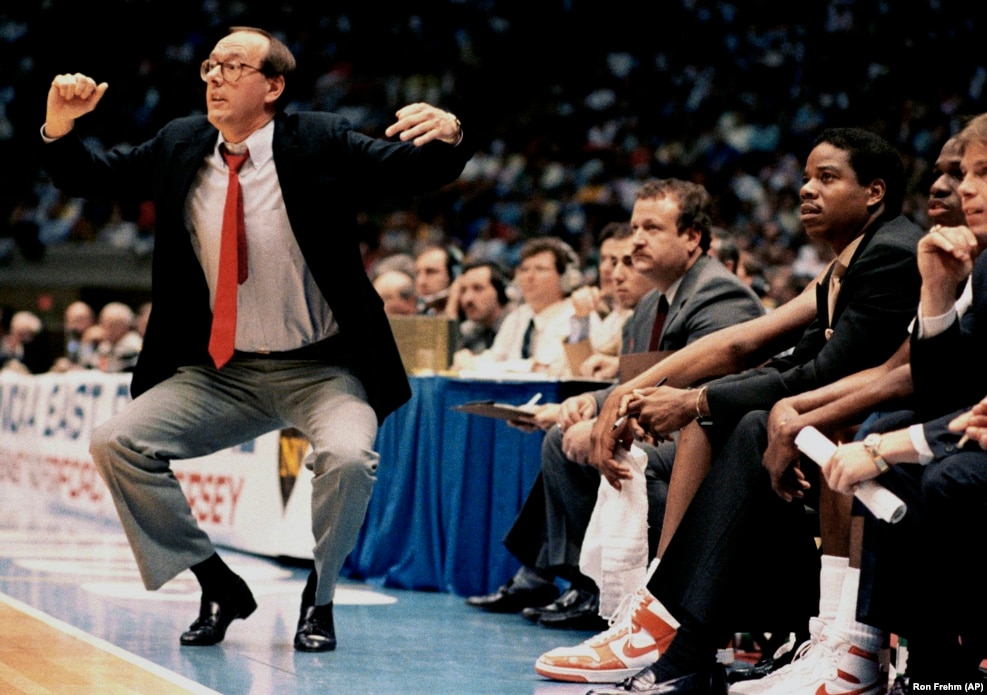
Now, the VOA Learning English program, Words and Their Stories.
On this program we explore words and common expressions in American English.
We communicate most commonly, of course, with our words. But we also speak with our bodies. We call it body language.
Sometimes, though, we need to describe our body language with words. That is what today's show is about - talking about body language.
Two types of body language have made their way into text messaging and social media language.
The most common is LOL. If we are LOL-ing, we are laughing out loud. That is what l-o-l stands for. And it is easy to know when to use this. If a friend writes something to you that is extremely funny - or hilarious - you can reply with a “LOL.” In conversation, though, it sounds weird to say the letters “L-O-L.”
Here's another one you might see in a text message from a friend.
So, when someone nods their head up and down, that means they are in agreement. And if they shake their heads back and forth, it means they are disagreeing.
Well, sometimes it does. Sometimes shaking one's head means something completely different.
For example, I might say I could only shake my head at his arrogance. This means that I couldn't believe that he had said or done something so arrogant. In a text, email or social media post, you can simply type SMH. But just as with LOL, it doesn't sound right in spoken English.
Here is an example of how to use the full phrase “shake my head” in a conversation.
I can't believe how your friend acted at the funeral! When the preacher began speaking, she laughed out loud. It was so disrespectful.
How do you think I felt? I was standing with her! I could only shake my head and cringe inside. It was so embarrassing!
If your friend is always behaving badly, you may just have to throw your hands up. This body language expression means that you realize that you cannot do anything to make a situation better.
For example, let's say you are teaching a roomful of young children when suddenly a dog runs through the classroom! The children jump up and start laughing and chasing the dog. You can't do anything to quiet them down. So, you just throw your hands up and let them have fun.
Shrugging your shoulders is when you raise and lower them. As body language, it shows that you don't care about something. But it can also mean that you are uncertain or perhaps just bored.
For example, let's say I am babysitting a friend's child. At dinnertime, I ask the child, “So, do you want pasta or rice for dinner?” He doesn't say anything. He just shrugs his shoulders. So, I made my favorite - pasta with tomato sauce!
Rolling your eyes is another way to show you don't care. This body language says that you don't care AT ALL about what someone is saying. Eye-rolling is even more disrespectful than shoulder-shrugging. So, teachers and parents often criticize children for eye-rolls by simply saying, “Don't roll your eyes at me!”
Staying with the eyes, we come to raising eyebrows. Usually when we raise our eyebrows, our faces look as if we are surprised or shocked by something. But raising your eyebrows can also show that you disapprove of something. There is a certain amount of judgement in eyebrow-raising.
Let's hear it used in a short dialogue.
Did you hear about Jack? During the weekly meeting with staff, he wore a head-to-toe clown costume.
Oh, that's nothing. He lost a bet with his son and had to wear it.
Well, it raised some eyebrows around the office. People are saying he isn't serious enough to be manager.
Wearing a clown costume is nothing to raise your eyebrows at. People should really lighten up!
Now, when some people are nervous, they bite their nails. It may not be a good habit, but it has given us a useful word.
Something, such as a game or a movie, that causes you to feel nervous because the ending is not known until the final moment is called a nail-biter!
When talking about a sporting event, the opposite of a nail-biter is a blow-out. A blow-out is a game where one team out scores the other by a lot!
Did you watch the basketball game last night?
I did! What a great game.
I know. I haven't seen a game that close in a long time. It was a real nail-biter! The score was tied until the last 10 minutes!
It was a much better game than last week. That game was a blow out. One team scored 68 points in the first quarter while the other didn't even score one. Boring.
And that's all for this Words and Their Stories.
Even though this program is not a nail-biter, we hope you're not rolling your eyes or shrugging your shoulders with boredom. And we certainly hope your eyebrows aren't raised in disapproval. But we do hope you give us a thumbs up, which -- of course -- means “good job.”
I'm Anna Matteo.
Does your language have expressions for body language? Let us know in the Comments Section.
(The song at the end is "Body Language" is by Queen.)
Anna Matteo wrote this story. Ashley Thompson was the editor.
Words and Their Stories
hilarious - adj. very funny
arrogance - n. an insulting way of thinking or behaving that comes from believing that you are better, smarter, or more important than other people : arrogant - adj.
cringe - v. to feel disgust or embarrassment and often to show this feeling by a movement of your face or body
boredom - v. the state of being weary and restless through lack of interest : bored - adj. filled with or characterized by boredom
habit - n. a usual way of behaving : something that a person does often in a regular and repeated way


